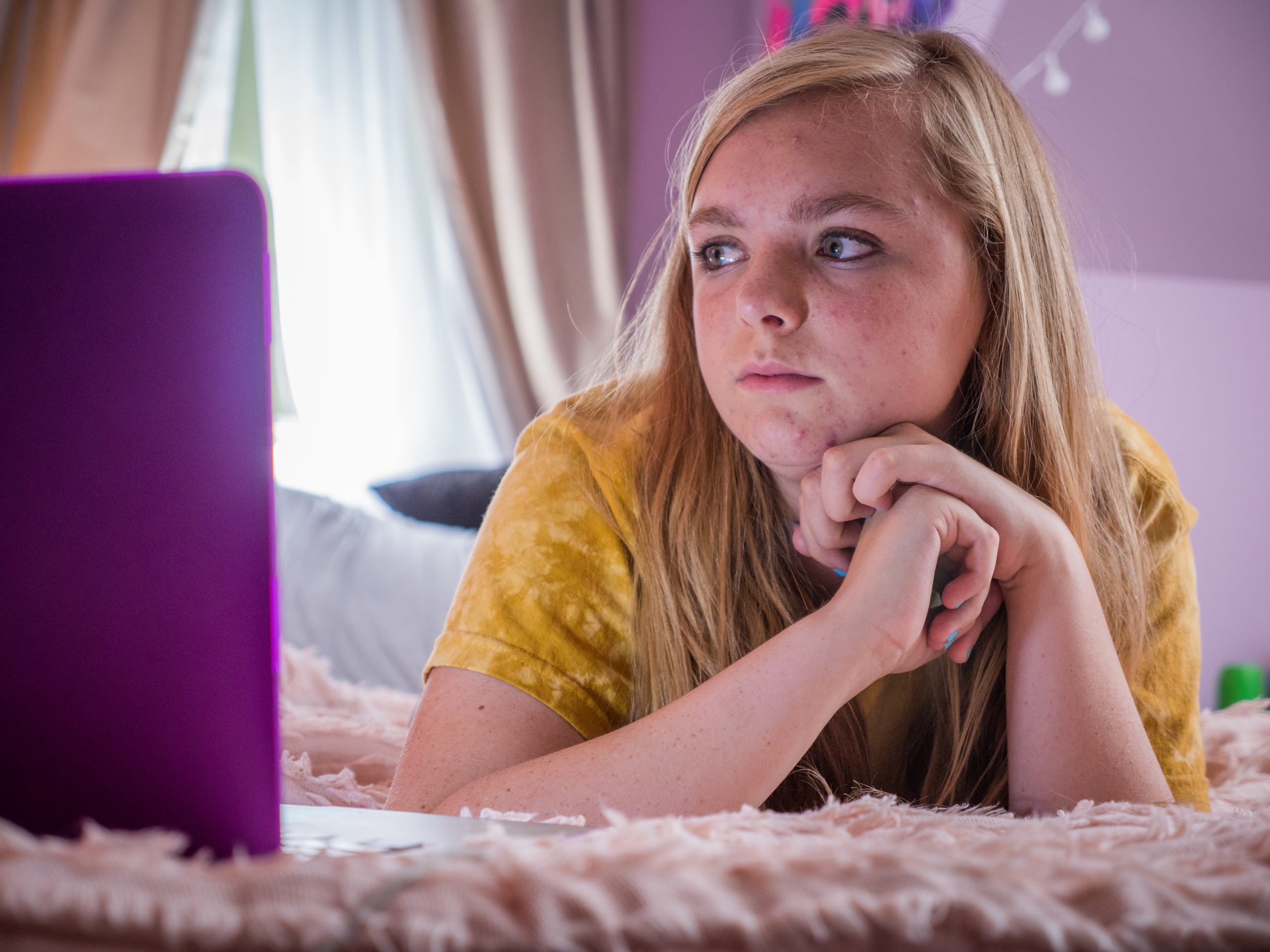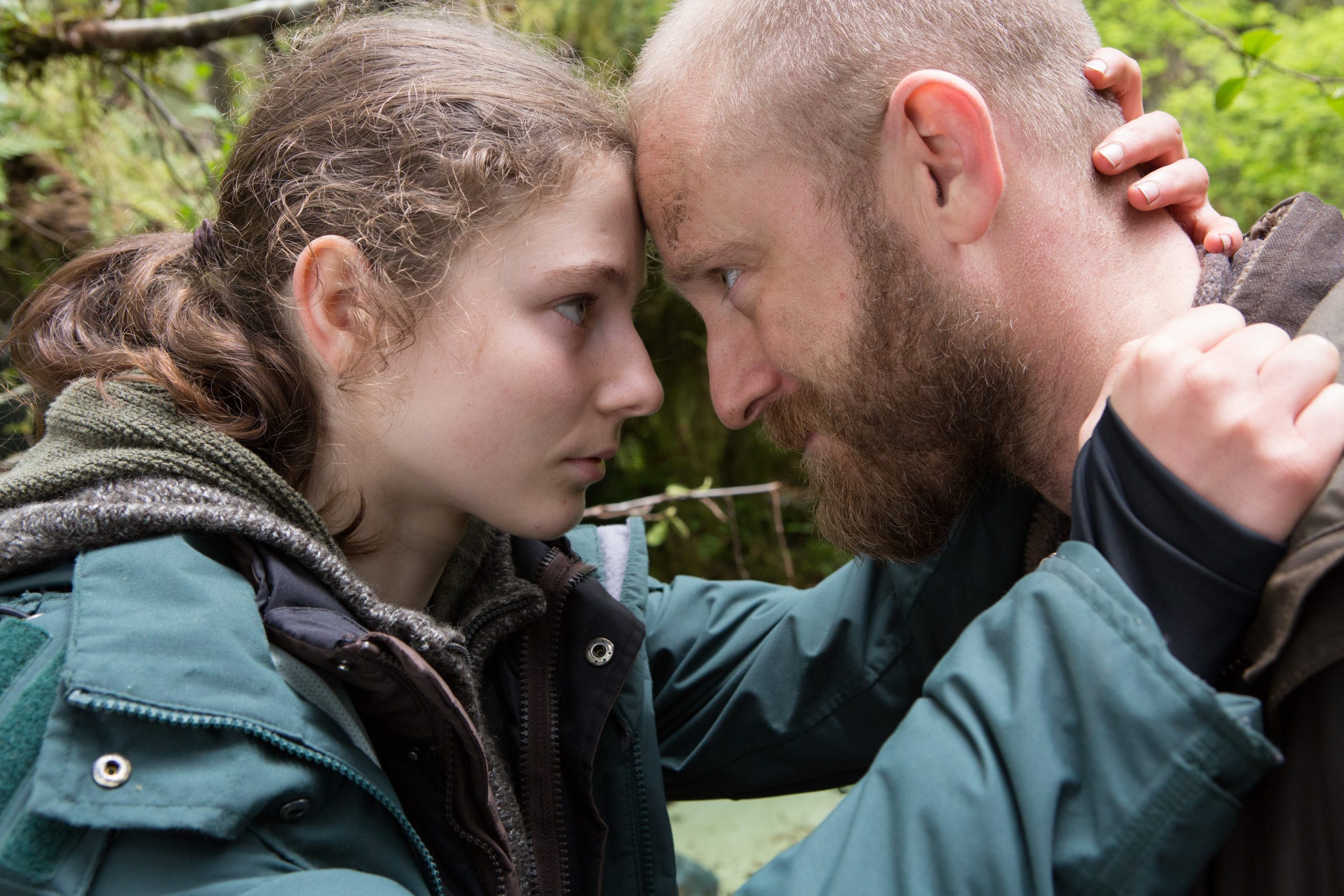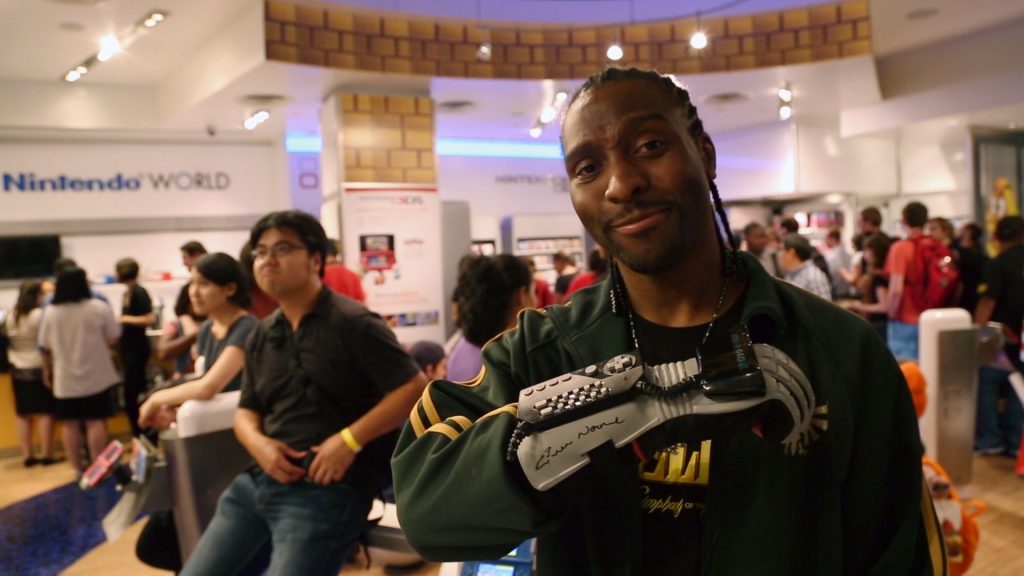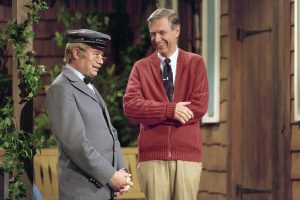Independent Film Festival Boston 2018 Recap

Evan Crean reviews his favorites from the 2018 Independent Film Festival Boston (IFFBoston)
Eighth Grade; Bo Burnham; USA, 2018; 94 min
Eighth Grade—comedian Bo Burnham’s big screen directorial debut—isn’t the kind of first film one would expect from him. Instead of sticking to comedy, Burnham branches out with a coming-of-age drama that chronicles a shy teen’s final weeks of eighth grade. That doesn’t mean Burnham’s film is laugh free however; his picture is punctuated with comedic moments that are humorous for their awkwardness without turning mean-spirited.
Burnham authentically captures the experience of growing up in the Snapchat age by casting an actual eighth grader, Elsie Fisher, as his lead Kayla. Thanks to Fisher the film rings true, because the narrative never feels like an adult attempting to retrofit their sensibilities into a teenager. The authenticity of Burnham’s story isn’t just limited to present day though—his movie speaks to men and women of all ages, since he effectively recreates the highs and lows of middle school everyone goes through at that age, from self-doubt to clumsiness talking to crushes, to the desire to be seen and heard by one’s classmates.
Eighth Grade’s narrative excels by eschewing teen film clichés about bullying in favor of deeper moments that emphasize Kayla’s internal struggles. Burnham adeptly explores those conflicts through advice videos Kayla posts for her “followers” on YouTube that mirror her life. The proceedings are lent additional gravitas from the film’s pulsating electronic music, which strikes the balance between mood-setting and intrusive. Finally, the last keys to its success are its performances by Elsie Fisher and Josh Hamilton, who plays Kayla’s father. Fisher embodies Kayla’s shy, awkwardness with great ease, while Hamilton is touching as a dorky single dad trying his best not to be intrusive. Hamilton’s moving, confidence-boosting speech to Kayla in her time of need is one of the sweetest father-daughter interactions committed to film, a scene destined to open up the waterworks if they haven’t already been activated by the movie’s many affecting moments.
Crime + Punishment; Stephen Maing; USA, 2018; 111 min

Stephen Maing’s striking documentary Crime + Punishment is so dense with fascinating material that its three main story threads could each make their own compelling documentaries. The first thread is an exposé of whistleblowing NYPD cops risking their jobs to speak out against the police department’s use of arrest and citation quotas to unfairly target young people of color. The second follows a teenager named Pedro Hernandez who is victimized by the quota system and falsely detained on charges of attempted murder. The third tracks private investigator Manuel Gomez as he fearlessly crusades for evidence to exonerate victims of this system.
Maing uses a minimal number of statistics to make his case, but he does lead with an infuriating one—that the NYPD makes New York City 900 million dollars per year with its arrests and citations. From there, numbers take a back seat in favor of fly-on-the-wall footage where Maing observes his subjects in their element. He goes undercover to show the discrimination and retaliation against the whistleblowers from their superiors and their colleagues. He documents how Officer Edwin Raymond is denied promotions because he won’t play ball despite being the most qualified, and he records how Officer Felicia Whitely is so persecuted that the stress forces her into early labor. He also follows Pedro’s iron-willed mother Jessica Perez as she fights to free her son, and rides along with Manuel Gomez as he pounds the pavement in search of evidence to help Pedro.
Given all of the elements at play, Maing’s documentary feels overstuffed, and as a result, slower than it should for subject matter so intriguing. His title screens and statistics are subtle, but often too subtle as their gravity is underplayed by how light and small they appear on screen. His use of hidden audio and video recordings from the police officers in the film comes across sensationalized too, since they aren’t as revealing or as damning as they promise to be. Still, the documentary’s vital subject matter and what it has to say about corruption within the NYPD prevail to make Crime + Punishment a must-see piece worthy of the criminal justice reform it hopes to inspire.
Leave No Trace; Debra Granik; USA, 2018; 108 min

In 2010 she introduced the world to Jennifer Lawrence with her backwoods noir Winter’s Bone, and now eight years later with Leave No Trace, Debra Granik brings another young talent to Hollywood’s attention: Thomasin McKenzie. Granik’s adaptation of Peter Rock’s novel by the same name, tells the story of a father (Ben Foster) and daughter (McKenzie) living happily off the grid in a Portland park until they are discovered by the authorities and forced back into regular life, where they clash with society’s expectations for them.
McKenzie’s character Tom starts off very obedient and loyal to her father Will, who isolates himself due to unspoken trauma he experienced in the military. The pair’s peaceful way of life is comfortable for both of them until it’s disrupted by their forced transition into society, a move that has unexpected consequences for Tom. Once Tom gets a taste for living in the company of others, she slowly starts to realize that she can’t and won’t go back to their old life of isolation, even though Will feels like that’s his only way to survive. This realization and its natural conclusion are the central conflict Granik builds toward with her narrative.
Granik’s film is deliberately paced, populated with beautiful shots of tranquil scenery that she effectively contrasts with bustling urban landscapes. She’s never judgmental of Will or his way of raising Tom, showing all of the positives that come from it for their relationship as well as the negatives, like the life-threatening consequences the pair faces after they attempt to run away and start over. She homes in on the emotional difficulty of Tom’s realization that she must part ways with her father, allowing two very talented actors room to address the issue between their characters believably. Tom and Will’s journey isn’t the most fast-paced, but it is engrossing and heartbreaking particularly in the film’s final scene, a tearful goodbye which demonstrates why Thomasin McKenzie could be Granik’s next great discovery.
The Power of Glove; Andrew Austin, Adam Ward, Paula Kosowski; USA, 2017; 65 min

As a documentary, The Power of Glove’s ability to entertain goes far beyond its clever name with its short, but sweet chronicle of the Power Glove, one of videogame history’s most notorious accessories. The film is as fun as it is informative, revealing the controller’s fascinating origins, pointing out the reasons why it was destined to fail, explaining its impressive technology, and exploring why it left such a profound impression on popular culture.
Directors Andrew Austin, Adam Ward, and Paula Kosowski perfectly set the mood at the documentary’s outset with gorgeous retro graphics and music, establishing that their piece pays homage to the era rather than critiquing it. They delve deep into the Power Glove’s history with the technology it’s based on, first as a tool for manipulating electronic music, and then as a virtual reality device for NASA, before it became a video game controller for toymaker Mattel. In seeing all of the factors working against the Power Glove—its rushed release, slower response time than a traditional controller, and lack of titles to support it as a peripheral—it’s easy to see why the device failed. Despite all of these factors however, the filmmakers never fault the creators, celebrating their can-do attitudes and the intellect that made such a cutting-edge device possible.
Two standout aspects of the documentary are an interview with Todd Holland, director of the 1989 video game movie The Wizard, and segments documenting how people have hacked the Power Glove to perform countless new functions. The interview with Holland is insightful for the ways he reflects on the Power Glove’s use in the movie and how the fate of both are intertwined. The focus on artists like Yeuda who have turned the device into a tool for music is also inspiring. However the film’s most poignant moment is its conclusion—an interview with a Power Glove engineer that compares the impact of the device with that of the Pony Express, brief, but memorable—the perfect analogy for the device’s endurance as an icon in spite of its failure.
Tre Maison Dasan; Denali Tiller; USA, 2018; 94 min

Society often forgets that prisoners are people—human beings that are the sum of their words and deeds—not a representation of their mistakes, but thankfully Denali Tiller’s documentary Tre Maison Dasan reminds viewers of that. Her film follows on three children (Tre Janson, Maison Teixeira, and Dasan Lopes) as they struggle to grow up with parents who are either current inmates in the Rhode Island prison system or recently released from it, in the case of Dasan’s mother. Tiller’s piece chronicles the challenges that each kid faces in trying to achieve a sense of stability, while also zeroing in on the parents themselves, providing a unique glimpse into the lives of inmates who are trying to be good parents and to become better people.
Tiller concentrates on children who are different ages and come from different situations, which provides a variety of perspectives on the same underlying issue. Tre, the oldest of the group, has it the toughest because his father has been behind bars for a while, he acts out with his mother, and he is starting to get in trouble with the law himself. Maison is doing well in school and thriving but is unsure whether he will leave the East Coast to live with his mother in California or stay with his grandmother until his father’s release. As the youngest, six-year-old Dasan must first grapple with understanding that his mother was in prison and why she was there, before she can start building their new life. All of these situations create their own set of challenges, which Tiller chronicles the families facing.
The seemingly unlimited availability of Tiller’s subjects allows the audience to get much closer to them than traditional documentary subjects, providing unprecedented access to the gutting conversations these parents have with their children. Tiller is a fly on the wall for raw, honest, and at many points, heartbreaking conversations between the families where the parents must talk to their children like adults to discuss life’s harsh realities. Sitting in on these discussions where the parents vulnerably share their remorse, their frustration about being in prison, and their concerns for their children transforms them from people who committed crimes into human beings striving for redemption, the best message as documentary on the subject could convey to viewers, who likely don’t think of inmates on such a personal level.
Won’t You Be My Neighbor?; Morgan Neville; USA, 2018; 130 min

Those that grew up watching Mr. Rogers on public television remember him as a kind, sensitive man whose goal was to educate children on complex subjects, while teaching them to love and trust themselves. But was Fred Rogers the kind of man off camera that he was on camera? Thankfully Morgan Neville’s documentary about the life and legacy of Rogers Won’t You Be My Neighbor? answers that question with a resounding, “Yes!”
Told primarily through interviews with those that knew Rogers best, Neville’s funny, sweet, and often tear-inducing film goes behind Mr. Rogers the personality to talk about Rogers the man, and the lives he touched. Interviews with Rogers explain his philosophies as an educator and show what a persuasive presence he could be, particularly during the late 1960s when PBS almost lost funding, and Rogers single-handedly convinced Congress not to take the money away. Footage from his shows remind viewers how Rogers discussed complicated topics like war, divorce, and even assassination in a way that was revolutionary, and accessible. Animation rounds out the documentary to establish parallels between Rogers and his alter ego Daniel the Tiger, a character that originated as a reaction to his stunted childhood.
Despite all the positivity, the documentary’s most fascinating parts focus on Rogers’ flaws, which add texture and humor to the piece. Interviewees discuss how Rogers’ love of silence was bad as a television technique, while hilariously playing with the effect themselves during the interviews. The most moving commentary however comes from Francois Clemmons, who played Officer Clemmons on Mr. Rogers’ Neighborhood. Rogers insisted that Clemmons remain closeted on the show, which hurt Clemmons, yet he still celebrates Rogers for the way he treated him as a person of color on the show, and privately as a close friend. When Clemmons tearfully reveals that Rogers was the only man to tell him he loved him platonically or otherwise, it’s a challenge not to cry. Given the discussion of Rogers’ healthy sense of humor with regard to parodies of his show, Won’t You Be My Neighbor? seems like a piece Rogers himself would approve of for its insightfulness and its good-natured humor, which tackles a few difficult subjects in a respectful, accessible way.
Regions: Massachusetts
